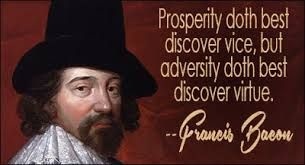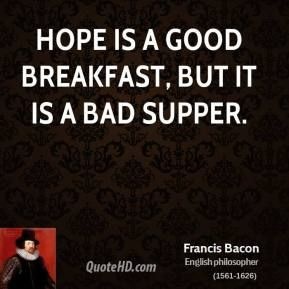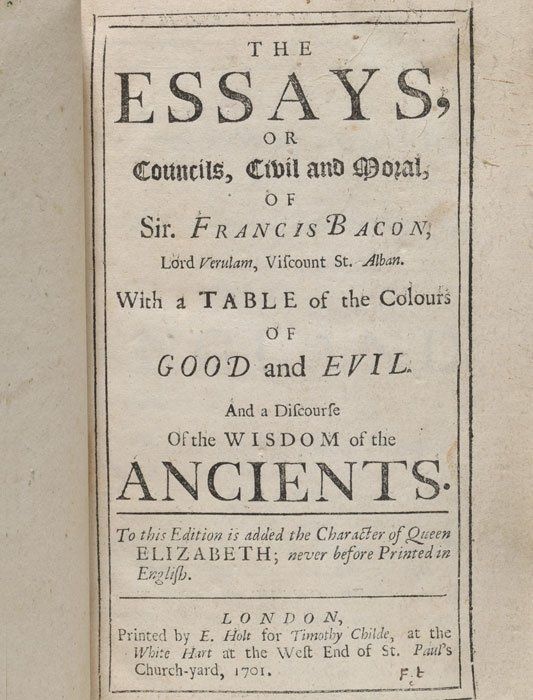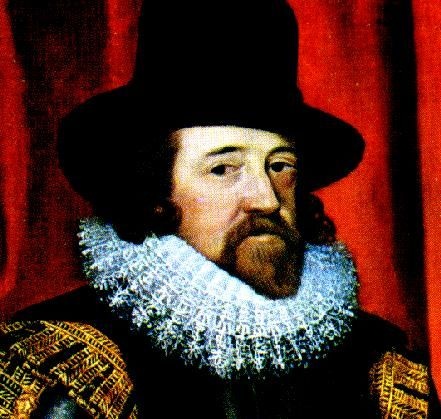Of truth: The most moralistic work by Francis Bacon
In this essay Bacon consider two aspects of truth objective or speculative truth on one hand, and on the other subjective truth which really truthfulness and is operative in social life.The essays shows Bacon's keen observation odf human beings.  The remark that the love of life is inherent to human beings may sound cynical but is neverthless undeniable.This essay express Bacon's moralistic leanings more than his prudential attitude of life.
The remark that the love of life is inherent to human beings may sound cynical but is neverthless undeniable.This essay express Bacon's moralistic leanings more than his prudential attitude of life.
As he says in this essay:
" It is heaven upon earth to have a man's mind move on charity rest in providence and truth upon the poles of truth"
There is no degression all ideas are pertain to truth or its opposite falsehood.Bacon's wide learning and knowledge of ancitent Greek and Latin writers is very much in evidence in the various allusion , references and quotations.These are a numbers of aphoristic sentences in this essay: As he says,
"A mixture of lie doth ever adds pleasure" 
Striking similies and analogies serve as medicine to inrich an essay which might otherwise degenerate into dullness as abstract discussions do.The similies and metaphors illustrate his ideas and are at the same time very apt.
His sayings are very authentic as he says ;
" It is not the lie that passeth through the mind, but the lie that shrinkth in and setleth in it, that doth the hurt" 
Bacon urges his readers to develop a love of truth because falsehood will only bring disgress and degradation to them.He admits that lies are often attractive.But he wants people agents the punishment which is likely to descend on them for the falsehood which they practice.He says:
A lie faces God and shrink from man"



